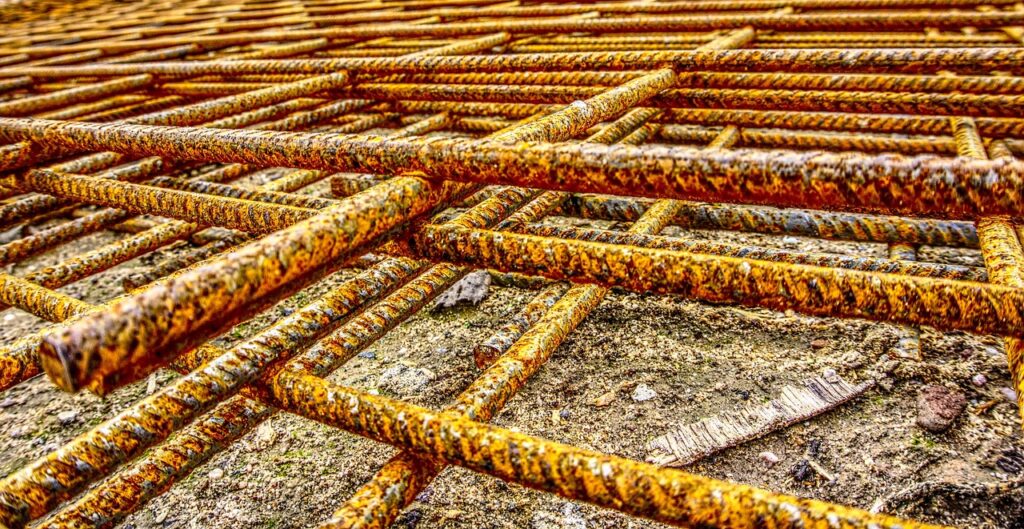A strong foundation is extremely important for any structure, and a metal carport is no exception. It does not matter if you are installing a carport to protect your vehicles, store equipment, or create a sheltered workspace, the foundation plays a critical role in ensuring stability and durability.
Choosing the right foundation depends on factors such as soil conditions, climate, intended use, and budget. Understanding the different foundation options available will help you make an informed decision that provides the best support for your metal carport.
Why a Strong Foundation Matters
A well-constructed foundation is essential for maintaining the structural integrity of a metal carport. Without a stable and level base, the carport may shift over time, causing misalignment that can lead to structural weaknesses. This can result in bent or warped framing, gaps in the connections, and even complete failure of the structure in extreme cases. A proper foundation helps distribute the weight of the carport evenly, preventing uneven stress that can compromise its longevity and safety.
Beyond structural stability, a good foundation also plays a crucial role in protecting the carport from external elements. Moisture is one of the biggest threats to metal structures, as prolonged exposure can lead to rust and corrosion. A well-drained and elevated foundation helps keep water from pooling underneath, reducing the risk of damage. Additionally, a sturdy base helps resist wind uplift, ensuring that the carport remains secure during storms and high winds.
The type of foundation you choose will depend on factors such as climate, soil conditions, and local building codes. Some foundations are designed for temporary installations, while others provide a permanent and robust base for long-term use. Choosing the right foundation is a critical decision that affects the overall performance, durability, and maintenance needs of your metal carport.
Concrete Slab Foundation
A concrete slab foundation is one of the most durable and widely used options for metal carports. It provides a solid, level surface that can support heavy loads, making it ideal for carports that shelter multiple vehicles, equipment, or serve as workspaces. Because of its strength and resistance to weathering, a concrete slab is often the preferred choice for permanent metal carport installations.
Installing a concrete slab requires careful preparation. The area must first be excavated and leveled before the concrete is poured. Typically, a slab ranges from four to six inches thick, though heavier loads may require additional depth. Reinforcing the slab with rebar or wire mesh improves its strength and prevents cracks from forming over time. Properly sealing the concrete also enhances its resistance to moisture and stains, extending its lifespan.
While the upfront cost of a concrete slab foundation may be higher than other options, it offers long-term benefits that make it a worthwhile investment. It requires little maintenance, provides a smooth surface for parking and working, and ensures the metal carport remains structurally sound for years. For those looking for a permanent and highly durable foundation, a concrete slab is an excellent choice.
Gravel Foundation
A gravel foundation is a cost-effective alternative to concrete that provides good drainage and stability. This type of foundation is ideal for areas where water runoff is a concern, as the gravel allows moisture to drain away instead of accumulating under the carport.
To install a gravel foundation, the ground must be excavated and leveled before adding a layer of compacted gravel. The depth of the gravel base should be at least four to six inches to provide adequate support. Using a landscaping fabric underneath the gravel can help prevent weed growth and maintain the integrity of the foundation.
Gravel foundations are suitable for temporary or semi-permanent carports and offer flexibility in relocation if needed. However, they may require occasional maintenance, such as leveling and replenishing gravel over time.
Concrete Piers
For those looking for a sturdy foundation without pouring an entire concrete slab, concrete piers provide an excellent solution. This method involves digging holes at strategic points and filling them with concrete to create strong anchor points for the carport.
Concrete piers are particularly useful for areas with uneven terrain, as they provide stability without requiring a fully level surface. They are also effective in regions with frost heaving, as they help prevent the carport from shifting due to ground movement.
This foundation option requires careful placement of the piers to ensure proper weight distribution and alignment. It is a more labor-intensive installation but offers excellent structural support for carports exposed to high winds or heavy snow loads.
Asphalt Foundation
An asphalt foundation provides a stable and durable surface for a metal carport while being slightly more flexible than concrete. This option is commonly used for driveways and parking areas, making it a practical choice for carports installed in commercial or residential settings.
Asphalt is installed by layering and compacting hot-mix asphalt over a prepared base, creating a smooth and even surface. It is resistant to water damage and provides good traction, reducing the risk of slipping or vehicle movement.
While asphalt is a durable foundation option, it may require periodic maintenance, such as sealing cracks or resurfacing, to prevent deterioration over time. It is best suited for permanent installations that require a professional and polished appearance.
Dirt Foundation
For those on a tight budget or installing a temporary carport, a dirt foundation is a simple and affordable option. This type of foundation requires minimal preparation and can be set up quickly without the need for extensive excavation or material costs.
However, a dirt foundation has several drawbacks, including poor drainage, susceptibility to erosion, and uneven surfaces. Over time, rain and moisture can create mud, making it difficult to park vehicles or store equipment without sinking into the ground.
If a dirt foundation is the only feasible option, it is recommended to compact the soil as much as possible and consider using stabilizing techniques such as adding gravel or pavers for additional support.
Anchor Considerations for Stability
Regardless of the foundation type chosen, securing the metal carport with proper anchors is essential to prevent shifting or tipping due to wind or other external forces. Different anchor types are available depending on the foundation material:
Concrete anchors provide a secure hold for carports installed on concrete slabs or piers by firmly embedding into the solid surface, ensuring long-term stability and resistance against strong winds and heavy loads.
Auger anchors, on the other hand, are ideal for dirt or gravel foundations as they drill deep into the ground, creating a strong grip that prevents shifting or tilting of the structure.
For carports placed on asphalt surfaces, asphalt anchors are specifically designed to penetrate and hold tightly, preventing movement and maintaining structural integrity even in varying weather conditions. Each type of anchor plays a crucial role in ensuring the durability and security of a metal carport, depending on the foundation it is installed on.
Choosing the right anchor system ensures that the metal carport remains stable and resistant to environmental forces.
Local Building Codes and Permits
Local building codes and permit requirements play a critical role in determining how a metal carport and its foundation should be installed. Different municipalities have varying regulations that govern aspects such as foundation depth, material selection, and anchoring methods to ensure stability and safety. In some areas, carports must adhere to wind and snow load requirements to withstand extreme weather conditions. Failure to comply with these regulations can lead to penalties, fines, or even the removal of the structure. Therefore, before starting construction, it is essential to research and understand the specific codes applicable to your location.
To navigate the complexities of permit applications and zoning restrictions, property owners should consult with local authorities or planning departments. Some jurisdictions may require detailed site plans, engineering reports, or soil assessments before approving a carport installation. These requirements are in place to prevent structural failures and ensure that the foundation is appropriate for the local terrain. In addition to obtaining permits, property owners should also confirm if there are neighborhood or homeowner association (HOA) restrictions that may limit the size, placement, or appearance of the carport.
Hiring a professional contractor experienced in local building codes can streamline the process and prevent costly mistakes. Contractors are familiar with the legal requirements and can ensure that the foundation meets all safety and structural standards. They can also recommend suitable anchoring methods based on soil conditions and weather exposure, helping to create a durable and long-lasting foundation.
Conclusion
Selecting the best foundation for a metal carport is a crucial step in ensuring its longevity, stability, and overall functionality. Concrete slabs provide a durable and permanent solution, while gravel offers an affordable and flexible option. Concrete piers are excellent for uneven terrain, and asphalt provides a professional and polished appearance. For temporary setups, dirt foundations may be used, but additional reinforcement is recommended.
If you consider factors such as budget, climate, and intended use, you can make an informed decision on the most suitable foundation for their metal carport. With proper installation, anchoring, and maintenance, the right foundation will provide a secure and long-lasting base for protecting vehicles and equipment.

